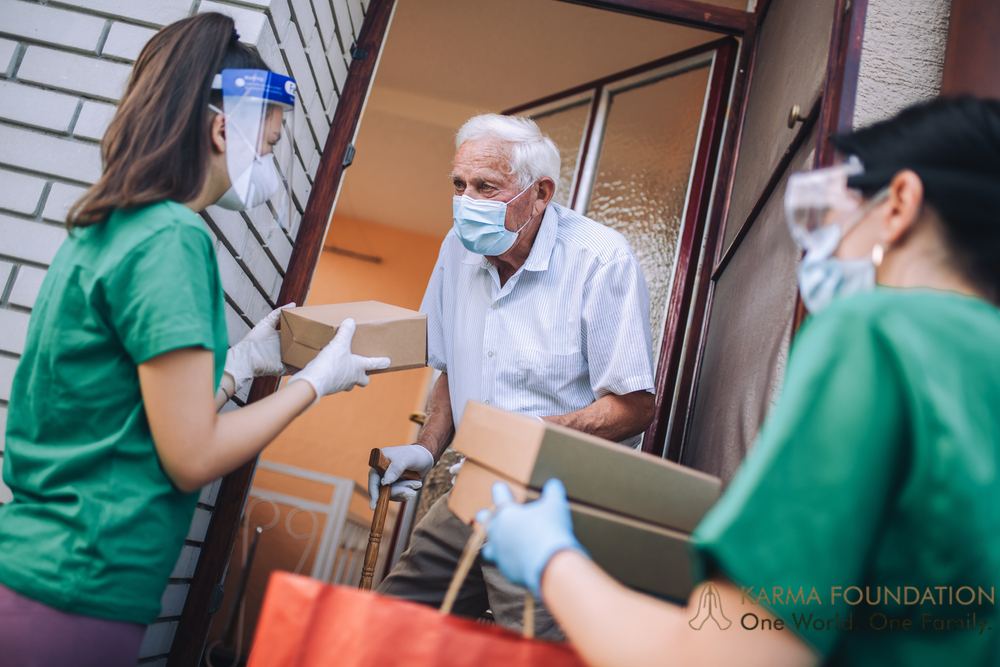The current times we’re living through are challenging for a great many of us. Those who are or have gone through serious illness and bereavement, those who have lost their businesses or have been made unemployed, parents struggling to juggle work and childcare and, of course, the elderly forced to self-isolate for a great deal of this past year. All these groups of people have been severely tested and naturally their trials have caused and will continue to cause feelings of isolation and stress.
And yet, many people have managed to address these negative developments and negative feelings by turning to an especially positive activity that we, at Karma Foundation Harrow England, heartily recommend… volunteering.
The stats don’t lie
Volunteering, it seems, isn’t just about helping those who need the help; although that is – and always should be – the primary aim of volunteering, of course. By volunteering, it’s emerged, people can help themselves, too; thanks to boosting their mental health by, quite simply, doing good.
A new study to be found in the Journal of Happiness Studies suggests that those who do volunteer, compared to those who don’t, might well be more satisfied with their lives and believe their overall health is in better shape. The extensive study featured 70,000 research subjects, all of whom live in the UK and all of whom were interviewed every other year between 1996 and 2014. Moreover, the study found that those who volunteer the most often may well be benefitting the most.
The happiness question
Such research findings are all very good, of course, but a question about volunteerism and the happiness and contentment it can bring does inevitably arise – is volunteering likely to make people happy, fundamentally, because happier people tend to volunteer more than less happy people? Well, apparently, the researchers who conducted the study took into account that factor (the initial wellbeing of volunteers) and balanced the results the study generated, accordingly.
In which case, it does appear that, irrespective of how happy or not someone may be before they start volunteering, becoming a volunteer and contributing positively to someone else’s life and society, in general, can make that person happier. Indeed, another study, published in the Journal of Economic Psychology, also found that those who volunteer, with relatively low levels of initial wellbeing, definitely experience a positive impact on their lives and mental health.

Why volunteering boosts mental health
This is another question to ponder and the answer may not be as straightforward as you’d think. Ricky Lawton, an associate of the UK-based Simetrica Research Consultancy, attributes the positivity of volunteerism to a few factors. First of all, there’s the ‘warm glow’; that aforementioned, rewarding feeling, which someone’s likely to feel during and straight after a volunteering session. This is followed by another significant (and, right now, in our pandemic-induced isolated times, very significant) factor – the social connection and interaction with others that volunteers can experience.
Finally, there’s the opportunities that volunteerism can bring. Depending on the specific type of volunteering someone throws themselves into, they can learn and deploy life-skills that may prove to be very useful further down the road, not least in what jobs and/ or careers they go on to enter.
Furthermore, the study undertaken by Lawton even suggests less socially interactive and more remote-working volunteerism can induce positive impacts, too. So, the message, overall, is very clear, then – volunteering is worthwhile not just for the needy, but just as much for volunteer themselves.

